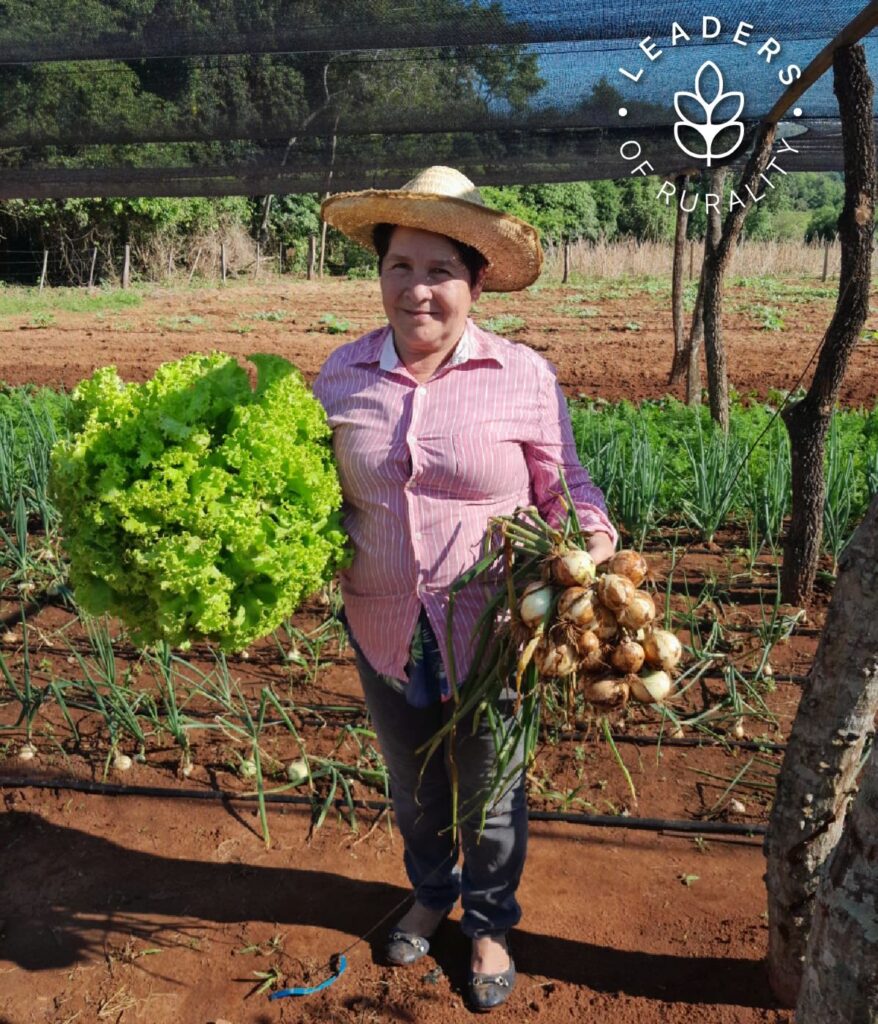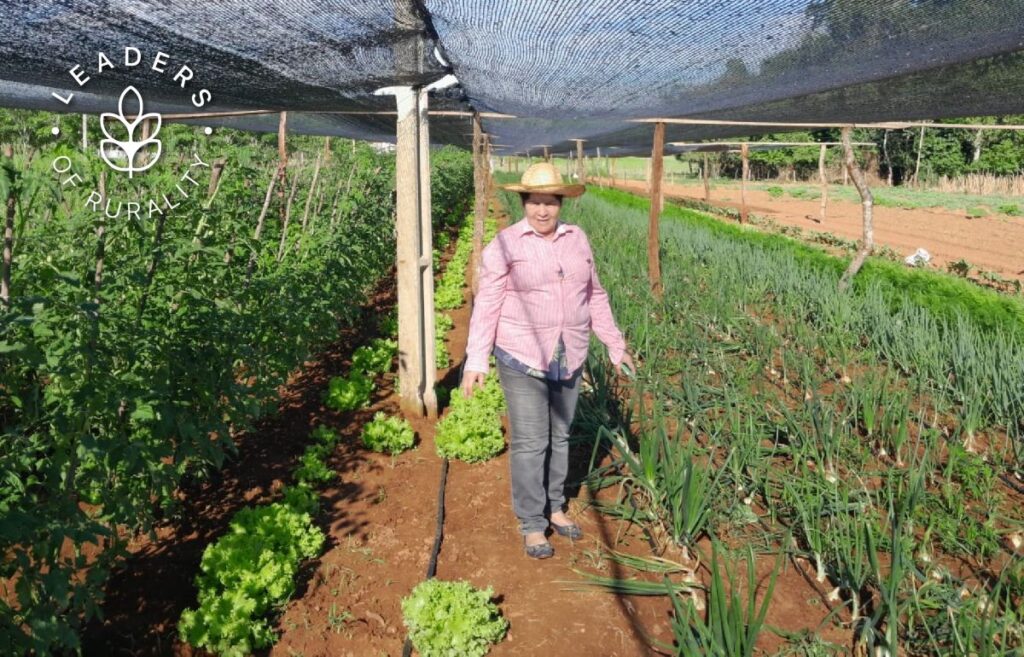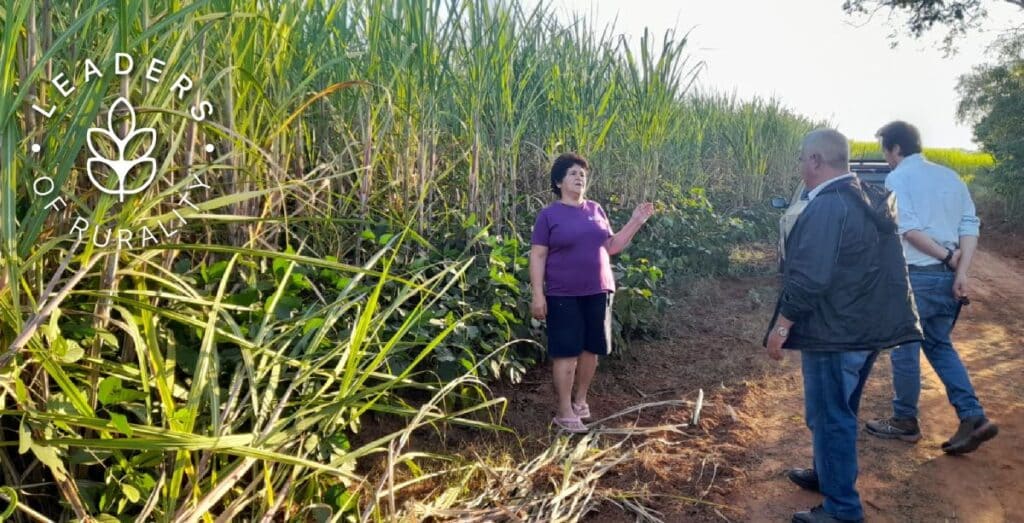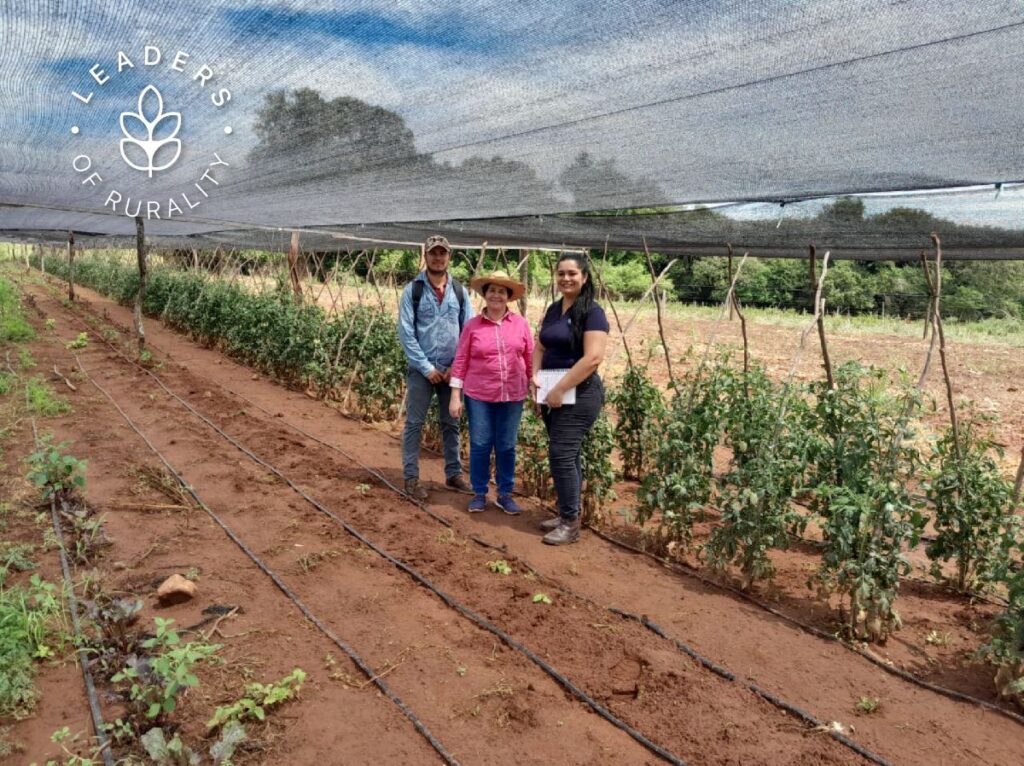
Asunción, 28 July 2025 (IICA) – The life of Ramona Vargas is like a film about rurality in the Americas: she grew up on a farm, trained and worked as a schoolteacher, and returned to the countryside to cultivate organic sugarcane and support her neighbors by forming a cooperative that has helped integrate local production into the international fair trade circuit.
For her efforts—which have made her a distinguished figure in her region and throughout Paraguay—the Inter-American Institute for Cooperation on Agriculture (IICA) has selected her as one of the Leaders of Rurality of the Americas.
Ramona will receive the Soul of Rurality award, an initiative of the Inter-American System’s specialized agency for agricultural and rural development, aimed at recognizing men and women who leave a mark and make a difference in the rural areas of the continent. These individuals play a key role in promoting planetary conservation and advancing food and nutritional security.
“I was born in Paraguarí, the ninth department of our country, but I didn’t grow up with my parents—I was raised by my grandparents, who worked on a farm,” Ramona begins as she recounts her story. Speaking from the office of the cooperative she manages, Vargas reflects that those early days working in the fields (“I’m about to turn 66,” she notes) taught her “so many things.” Still, her grandfather believed that wasn’t enough and insisted she get an education. She became a certified teacher and went on to work at a school in the department of Guairá, which has been her home ever since.
Following her grandfather’s example, Ramona wanted her three children—two sons and a daughter—to pursue professional careers. They did just that: two became veterinarians and one a dentist. Her career in education, which included several years as a district supervisor, ended when she retired after 26 years in the teaching profession.
But for Vargas, that was merely the end of one chapter and the beginning of another—though not an unfamiliar one. “Talking to a fellow community member, also retired, I said: ‘Now that we’re no longer tied up with the school, we can start a cooperative here in our area,’” recalls the Paraguayan farmer. That conversation took place in mid-2012, and by September of that year, the cooperative was officially established and operational.
“When we started that project, we had nothing—nothing at all,” Ramona says. “To do any paperwork or administrative procedures, we had to pay out of our own pockets. But thank God our cooperative has grown. We now have two beautiful buildings of our own, we’ve entered the fair trade market, and we’re producing organic sugarcane,” she adds.

The value of producing and eating healthy
While she was working as a teacher, her husband managed the family farm. “When we got married,” she says, “we were very poor. We built ourselves a little house on the farm” where they lived and continued producing crops. Her childhood in Paraguarí, with her grandparents, was also humble—but with a significant difference: sugarcane was cultivated mainly for personal use.
“My grandfather didn’t buy sugar; there was a trapiche mill with oxen, we made syrup and stored it in a drum,” the cooperative leader recalls. The syrup was used to make juice, eaten with peanuts, or used to prepare kaguyjy, a porridge made with milk and cane syrup. “My grandfather was a very hard worker, and almost nothing was bought from outside,” Ramona says. “We always ate healthy.”
This commitment to healthy eating has remained central to Ramona’s journey—from her grandfather’s farm to the classroom, to founding a cooperative, and eventually becoming president of the Paraguayan Fair Trade Coordination Office. Promoting healthy food is a guiding principle of her work. In this case, it means advancing organic sugarcane cultivation—one of Paraguay’s key agricultural products.
The work, Ramona explains, is not easy, and at times it’s difficult to generate enough income to sustain the production cycle. Organic sugarcane farming, she emphasizes, is “completely different” from conventional methods. The cooperative’s members must meet all the requirements to remain in the fair trade system and undergo annual international audits.
As with any organic crop, non-organic fertilizers are strictly prohibited; even the lime used to restore soil health must be organic. Fields must be kept clean, workers must have access to proper facilities and potable water, and waste disposal must be managed in an environmentally responsible way. Inspectors granting certification, Ramona notes, “can’t see a single piece of plastic” on the farm.
The cooperative and the coordination office regularly organize training sessions. Local producers “help each other out,” Ramona says. For example, they ensure that no one starts fires to clear land.
Efforts are also made to obtain financing to invest in machinery that benefits all cooperative members. To help producers, they acquired a mechanical grab to load sugarcane onto trucks, avoiding the need to carry it by hand. They also have a large tractor with three features: row marker, subsoiler, and cultivator.

Knowledge and recognition
Any assistance the cooperative can provide is greatly appreciated by producers, who often face serious challenges in maintaining organic farms. Some of these are natural—like drought—but others, according to Ramona, are human-made. Delays in payments from processing plants are common, and often the price paid for organic sugarcane is lower than for conventional cane.
“We’re fighting,” Ramona says, “because there’s almost no price difference” between the two, “and maintaining an organic product is much more expensive.”
What can be done to change this and keep promoting organic farming? Vargas suggests starting by “truly valuing nature and the land, because that’s what gives us life—it’s where our food comes from.” This message also needs to reach consumers. One of the cooperative’s approaches to doing this is by organizing weekly agricultural markets in both rural areas and cities like Villarrica, where they sell fruits and vegetables, cheese, milk, meats, and chicken.
“People come to shop and we explain to them that they should value our production—it’s healthy, chemical-free, and sometimes even cheaper and fresher,” she emphasizes. “We bring it directly from our gardens to sell, and we offer very affordable prices.” She adds: “I haven’t lost hope that we’ll keep making progress. People will realize how important organic production is—it’s just that sometimes it’s not valued because it’s not widespread.”
“Cane is our reality”
Ramona Vargas is currently serving her second term as President of the Paraguayan Fair Trade Coordination Office and is grateful to her colleagues for their continued trust. But she also acknowledges that it’s still uncommon to see women in leadership roles like hers—or even running things on a farm.

Ramona proposes a very simple formula for shifting that dynamic. “I tell the men: ‘If only you work and we women stay home without producing anything, then you have to work twice as hard—sometimes three times—because everything is so expensive.’”
That said, she adds, women in rural Paraguay “are gaining a lot of ground.” Female participation in production work, she stresses, “is important,” as are the new opportunities that have recently opened up. In the past, Vargas recalls, “we didn’t even take part in meetings because we were confined to taking care of the home.”
Although challenges remain, “we’re fighting and we’re moving forward,” says Ramona, concluding: “We love our crop, we know it well, and we know how to work it—that’s why no one wants to walk away from sugarcane. That’s our reality.”
More information:
Institutional Communication Division.
comunicacion.institucional@iica.int
Photo gallery











